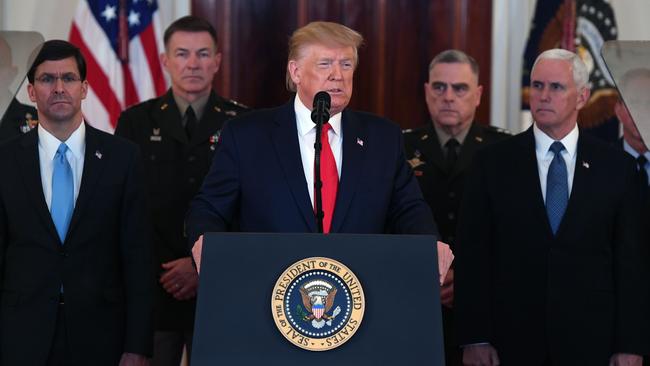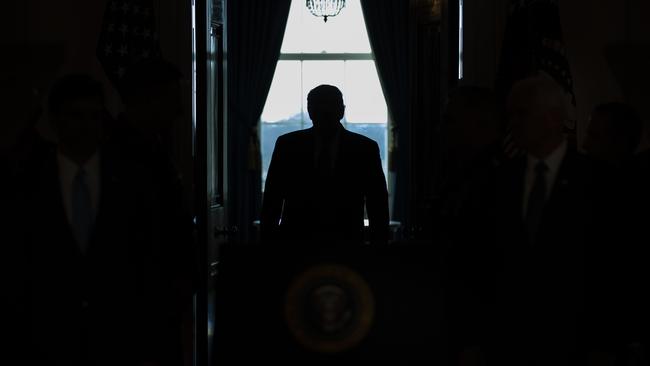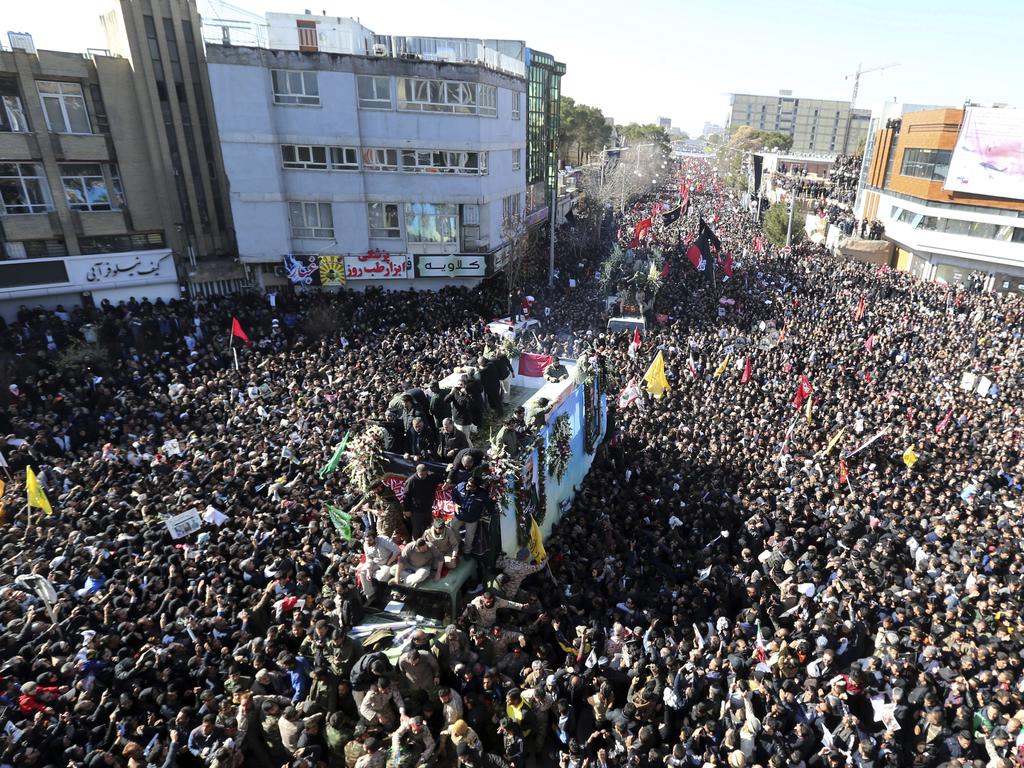
If the limit of the Iranian response to the American killing of general Qassem Soleimani is two missile barrages that didn’t kill any Americans, the US President may have changed the rules of a part of modern warfare in a way that helps the Americans.
Of course, there are a thousand ways this can go wrong. The Iranians may not be finished and Trump may yet face diabolical questions of when and how to escalate his own response.
The effects on internal Iraqi politics are unclear, but one message the Iranians are sending the Iraqis is that they can and might launch direct military attacks against Iraqi installations, such as the al-Asad airbase and the smaller facility in Kurdish Irbil, which house Americans and have been used for operations against Iran.
For the Australian soldiers in Iraq, there is an irony in the Iranians hitting the al-Asad airbase. In one of the first significant engagements of the US-led invasion of Iraq, the Australian SAS captured the al-Asad airbase and 57 Soviet MiG fighters stored there (intelligence had indicated there might be two).
Iraqis are both nationalistic and extraordinarily factionalised. The unanimous vote in the Iraqi parliament to ask all foreign forces to leave Iraq, though not binding on the Iraqi government, shows how fragile American influence might be. It is inconceivable that Iranian forces would leave Iraq even if Baghdad ever summoned the courage to tell them to go.
And yet Trump may have achieved a limited, difficult but important victory.

This has been a sequence that displays both Trump’s greatest strengths and his weaknesses.
One of his strengths is that his presidency is protean. He is genuinely unpredictable. At first we all feared he would be a military hot head. Then the view firmed that he would never take risky military action. Now, in killing Soleimani, he has taken a decisive and highly risky military action, which could have led to the kind of escalation Trump seems absolutely allergic to. So far, it looks as though Trump’s calculations might be effective in this case.
Iran, like Russia and to some extent China, is a master of grey zone conflict or hybrid warfare. These terms describe military actions designed to hit the US and its allies but which have a semi-plausible deniability for the sponsoring state and therefore never quite trigger a decisive response.
Iran mobilises, leads and effectively controls Hezbollah in Lebanon, a similar terrorist outfit, Kataib Hezbollah, in Iraq, and several Palestinian terrorist groups and has taken on the Houthi rebels in Yemen as a strategic client.
Its agents routinely attempt or carry out terrorist killings in Europe and have done so in Asia and Latin America.
Soleimani sat at the very heart of this international operation and sponsored massive killings in Syria and Iraq. Kataib Hezbollah on December 27 struck a base in Iraq and killed an American contractor and wounded a number of US soldiers. It has been difficult for friend and foe alike to work out Trump’s real red lines. It seems that killing Americans is the reddest and strongest of all of his red lines.
Instead of just striking back at Iran’s Iraqi proxies, Trump struck at the very top of Iranian leadership itself.
He did what American presidents have often threatened but seldom carried out. He retaliated against the primary state sponsor of deadly action against the US rather than aiming exclusively at the local proxy that carried out the orders. Thus Trump may have changed the rules of grey zone conflict. The major metropolitan power might pay a direct military price for it after all.
The situation is full of risk but Iran has been acting with impunity across the Middle East, constrained only by US sanctions. The equations are now a little different.
In targeting the Iranian leadership personally, Trump changes the equation in other ways.
When Ronald Reagan bombed Muammar Gaddafi’s own tent in 1986 he changed Gaddafi’s risk calculus fundamentally and he also, as a consequence, changed Gaddafi’s behaviour.
Nonetheless, the whole sequence also shows two Trump weaknesses.
His overwhelming preference is to get out of the Middle East altogether. This encourages bad actors to keep raising the costs for him of staying and discourages allies from pitching in full steam with the US.
Secondly, Trump’s deep disinclination to take any military action directly in defence of a US ally degrades US alliances.
The Iranians a few months ago blatantly attacked giant Saudi oil facilities but did not pay any price. That undermined US credibility and probably encouraged the Iranians to escalate their destabilisation, terrorism, proxy arms build-ups and international political interference.
Neither the US nor Iran wants to escalate. If a new stability is achieved at a lower level of Iranian military adventurism, even a slightly lower level, Trump’s unorthodox methods will have produced geo-strategic gain.
It’s a big if, but it wouldn’t be the first time.








Though the Iran-US tension has escalated dangerously, it is just possible that Donald Trump has won a limited, but important, tactical victory.